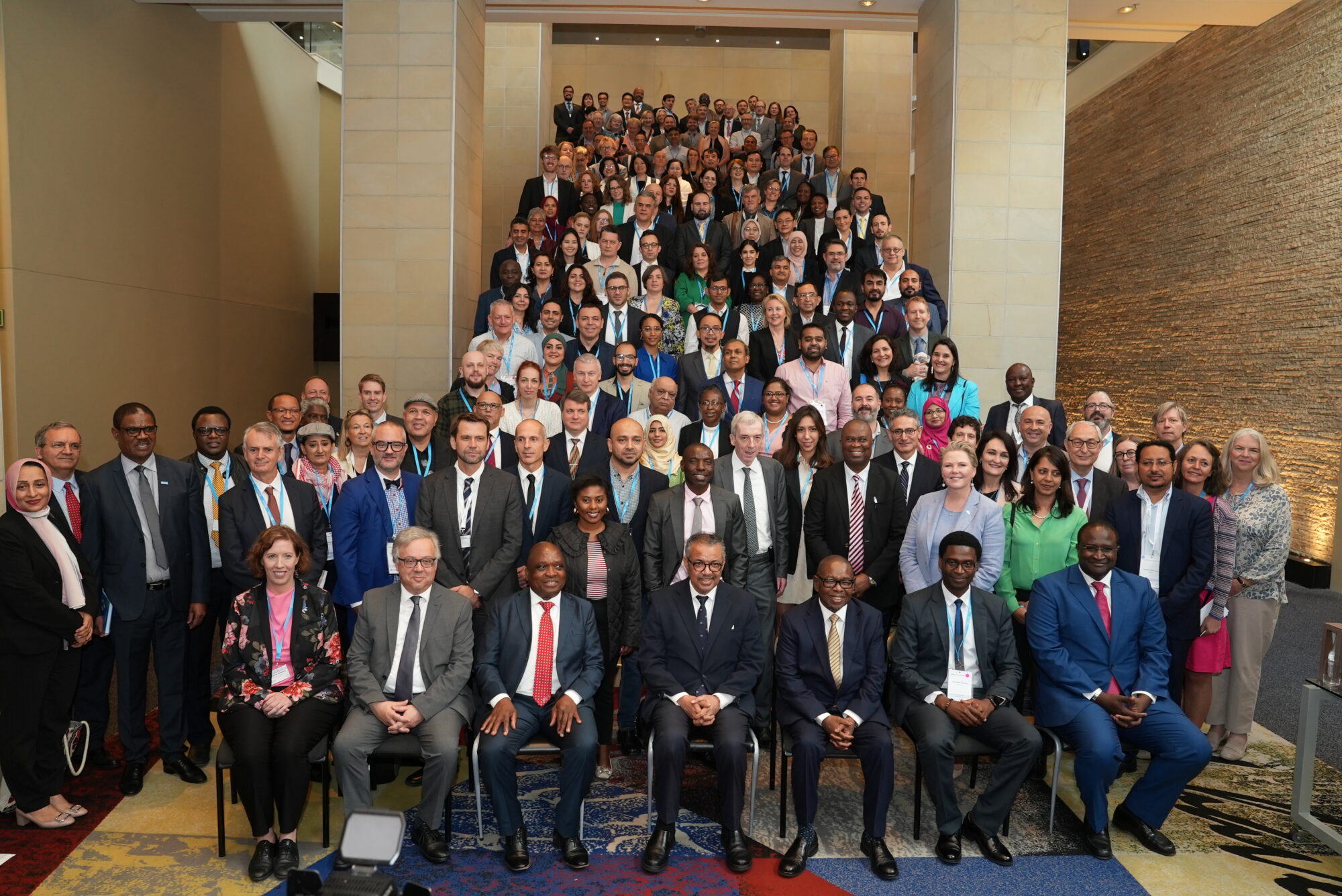mRNA Technology Transfer Program Exceeds Expectations in Establishing Viable Pathways for Health Equity
Public Citizen News / September-October 2023
By Liza Barrie

This article appeared in the September/October 2023 edition of Public Citizen News. Download the full edition here.
In a remarkable stride towards fostering health justice, the mRNA Technology Transfer Program, established by the World Health Organization (WHO), has defied expectations by successfully establishing a robust pathway for equitable access to vital health technologies. This groundbreaking initiative is propelling low- and middle-income countries towards self-sufficiency in mRNA vaccine development. Backed from the outset by Public Citizen, the program is charting a course towards a more just and secure future for vulnerable populations worldwide.
The program aims to establish sustainable mRNA manufacturing capabilities in regions with limited or no capacity, thereby promoting health security and autonomy in the sphere of mRNA vaccine development, production, and distribution. Inventors, developers, researchers, and experts are working together to facilitate the transfer of mRNA-based knowledge and technology to vaccine manufacturers across Africa, Asia, and the Americas on an industrial scale. The unique partnership model focuses on fostering global collaborations, while empowering local workforces.
This mRNA program emerged in 2021 as a direct response to the extreme vaccine inequity that defined the global response to the COVID-19 pandemic. WHO and its consortium partners hope to correct a fundamental imbalance that has kept the global south dependent on the north. Just as with the HIV epidemic in the early 2000s, when perhaps millions died needlessly in developing countries due to limited access to life-saving treatment widely available in the United States and Europe, these nations found themselves at the end of the line for receiving mRNA vaccines to safeguard against COVID-19.
“The lessons from the COVID-19 pandemic and preceding HIV crisis have left a lasting impact,” said Peter Maybarduk, Public Citizen’s Access to Medicines director, who joined 200 international participants working with the program for its official launch in Cape Town in April. “Uniting from Africa, Asia, Europe, and South America, researchers pledged to never again be vulnerable to wealthy nations during a lethal virus outbreak in their regions. These countries recognize the importance of crafting their own solutions and are actively doing so,” he added.
A growing number of stakeholders are engaged in the partnership, including the African Union, Africa CDC, biomanufacturing companies in 15 middle-income countries in the global south, as well as leading international scientists, government donors and the Medicines Patent Pool, a Geneva-based international organization devoted to improving access to affordable and appropriate drugs in developing countries.
Though initially focused on creating a COVID-19 vaccine, the initiative has identified more than 30 possible priority targets for mRNA vaccines for prevalent diseases in developing countries for which inadequate or no vaccines exist, including malaria, tuberculosis, HIV, yellow fever, rotavirus, and Dengue virus.
Afrigen Biologics and Vaccines, based in Cape Town, has been designated as the program’s center of excellence and training. In February 2022, Afrigen announced it had successfully developed Africa’s first mRNA vaccine candidate using the publicly available sequence of the NIH-Moderna vaccine after Moderna declined a WHO request to share its technology and expertise. The Afrivac212 vaccine candidate is now in clinical trials. It is the first vaccine ever to be made based on a widely used vaccine without the assistance and approval of the developer.
The distinctive feature of the WHO-led program lies in its commitment to technology and knowledge sharing. This is a departure from the traditional competitive approach seen in drug development, where companies often guard their discoveries in secrecy. The strategy aims to ensure that the capacity is viable and ready to tackle future pandemics effectively. Equity, knowledge sharing, and sustainability serve as guiding principles.
Renowned U.S. immunologist Barney Graham, a leading figure in mRNA vaccine creation at the National Institutes of Health (NIH), is advising the program. In August, a team of seven Afrigen experts spent two weeks training alongside scientists at the National Institute of Allergy and Infectious Diseases’ (NIAID) Vaccine Research Center in Frederick, Maryland.
WHO Director-General Tedros Adhanom Ghebreyesus presided at the mRNA Technology Transfer program’s inaugural Cape Town meeting. According to Maybarduk, participants focused on the challenges that lie ahead for the program. He said that national health systems and procurement and supply chains need to be strengthened. The program needs reliable financing mechanisms, and the problems of corporate control of vaccine recipes and vaccine hesitancy must be overcome, or at least mitigated.
Maybarduk said he is optimistic. “South African and Brazilian teams are making mRNA vaccines. Scientists across the global south are contributing toward vaccines against HIV and tuberculosis. Researchers worldwide are sharing technology and knowledge. It’s an amazing and heartening program already, and the only question is just how far it can go.”